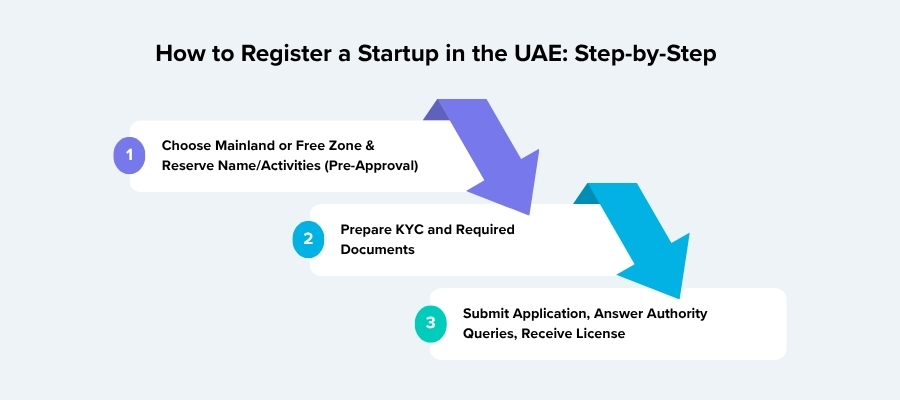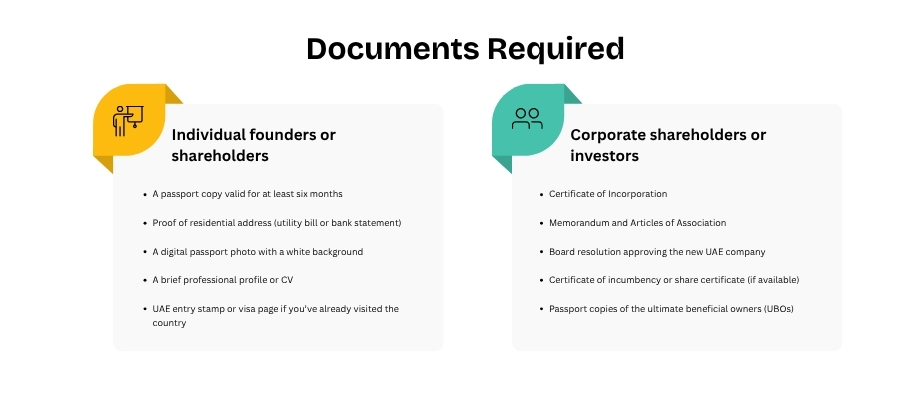Launching a business in the UAE isn’t just paperwork — it’s a fast track into one of the most connected markets in the world. With startup launch support programs growing across Dubai, Abu Dhabi, and Sharjah, founders now have a clear path from idea to license without the red tape that slows companies elsewhere.
The country’s appeal goes beyond zero personal income tax. You get full foreign ownership, quick online registration, and direct access to global investors who see the UAE as a regional launchpad. Most free zones process company setups in days, not months, and many offer startup incubators, co-working spaces, and mentoring programs built into their packages.
Whether you’re testing a SaaS product, building an e-commerce brand, or expanding your consulting practice, the UAE gives you structure and flexibility at the same time — a rare mix that lets small teams scale fast.
Why Launch a Startup in the UAE
The UAE has positioned itself as the Middle East’s startup capital, and it shows. The government actively funds innovation through initiatives like the Dubai Future Foundation and Hub71 in Abu Dhabi, while more than 40 free zones compete to attract founders with simplified rules and strong investor networks.
You’re not just setting up a company; you’re stepping into a system built for speed. Registration portals are online, visas are linked to business licenses, and English is the working language across all major jurisdictions.
Add to that the country’s location — a few hours from both Europe and Asia — and the advantage of 100 % ownership for most business activities, and it’s easy to see why foreign entrepreneurs pick the UAE as their base.
From fintech to food tech, creative studios to logistics platforms, thousands of small teams launch here each year because the fundamentals make sense: stable regulations, open banking, and a government that actually encourages risk-taking.
Who Our Startup Launch Support Is For
Launch your startup in the UAE with Consulting.ae — fast company registration, smooth licensing, banking preparation, and visa guidance from start to finish. Our startup launch support is designed for founders who want a clear, compliant setup without wasting time or money on guesswork.
If you’re a foreign entrepreneur, the UAE lets you build a business without local ownership restrictions. You keep 100 % control, gain investor visa options, and operate from one of the most connected markets between Europe, Asia, and Africa.
Suppose you run a small team or tech venture. In that case, our support covers the essentials — digital incorporation, authority filings, and introductions to startup-friendly free zones such as DMCC, IFZA, and ADGM. Everything happens online and within days.
Even freelancers and consultants use this model to go official, open a business bank account, and invoice clients globally.
In short, Consulting.ae helps doers move fast, stay compliant, and turn a good idea into a real, operational company in the UAE.

How to Register a Startup in the UAE: Step-by-Step
Registering a startup in the UAE follows a clear sequence. Everything is handled online now, but you still need to get the details right. Here’s how to move from idea to license without losing time.
Choose Mainland or Free Zone & Reserve Name/Activities (Pre-Approval)
Your first decision is location. The mainland works best if you plan to trade inside the UAE or deal with government clients. Free zones such as DMCC, IFZA, RAKEZ, or ADGM are faster to set up and better for startups focused on online or international operations.
Once you’ve chosen, you’ll pick a company name and list your activities. The registrar checks availability and issues an initial approval — basically a green light to proceed.
Prepare KYC and Required Documents
Next comes the documentation. Every shareholder and manager must provide a passport copy and proof of address. If your parent company or investor is corporate, you’ll need its certificate of incorporation, board resolution, and attested company papers. A few passport photos and a short company profile are also required.
Documents issued outside the UAE must be attested in the home country and legalized at a UAE Embassy before submission. Free zones are very strict about this step, so don’t skip it.

Want to learn more about UAE business setup services?
Submit Application, Answer Authority Queries, Receive License
Once your pack is complete, you’ll submit everything through the authority’s online portal and pay the initial application fee. Reviews usually take between three and ten working days in free zones, a little longer for mainland entities because of additional checks.
During the review, compliance officers may reach out for clarifications about shareholders, the source of funds, or activity descriptions. Reply quickly and clearly; most delays happen when applicants ignore these queries.
When approval comes through, you’ll pay the final license fee and receive your documents: the Certificate of Incorporation, Memorandum and Articles of Association, the Business License showing your activities, and share certificates. These are sent digitally, though stamped hard copies can be ordered later for banking or investor purposes.
Setting up your startup is just the beginning. Consulting.ae continues to support founders after the license is issued, helping with banking, visa arrangements, and compliance filings — everything you need to turn a new registration into a working business.

Documents Required for Startup Company Registration in the UAE
Setting up a startup in the UAE doesn’t demand mountains of paperwork, but accuracy matters. Every authority — whether mainland or free zone — runs strict KYC checks, so it’s worth preparing the full pack before starting your application.
For individual founders or shareholders, you’ll need:
- A passport copy valid for at least six months
- Proof of residential address (utility bill or bank statement)
- A digital passport photo with a white background
- A brief professional profile or CV
- UAE entry stamp or visa page if you’ve already visited the country
For corporate shareholders or investors, authorities ask for:
- Certificate of Incorporation
- Memorandum and Articles of Association
- Board resolution approving the new UAE company
- Certificate of incumbency or share certificate (if available)
- Passport copies of the ultimate beneficial owners (UBOs)
If any of these documents come from outside the UAE, they must be attested in the issuing country and legalized by the UAE Embassy before being uploaded. Some free zones also require an English translation.
Having your documents ready before starting the application avoids the back-and-forth that can slow down approvals. Consulting.ae reviews every file before submission to make sure your startup registration moves through cleanly the first time.
Cost of Startup Registration in the UAE
The UAE doesn’t have one fixed price for startup registration because every jurisdiction sets its own schedule of fees. Most free zones publish their rates publicly, and they’re updated each year. For example, DMCC lists its standard company setup package from AED 13,900 on its official portal, while RAKEZ promotes business setup packages starting at AED 5,499 for entrepreneurs. These figures come directly from the authorities themselves.
What you actually pay depends on several factors:
- The jurisdiction you choose (mainland, DMCC, IFZA, RAKEZ, ADGM, etc.)
- The number of shareholders and activities listed on your license
- Whether your documents require attestation or translation
- Optional services such as visa eligibility, establishment cards, or office space
Official costs usually include name reservation, business-activity approval, license issuance, and document stamping. What’s not included are embassy attestations, courier fees, or professional service charges for handling the process.
Because each free zone tailors its pricing to startup needs, it’s best to check the most recent fee schedule published by the chosen authority. Consulting.ae compares these options for you and provides a full breakdown before you commit, so you know exactly what the government and licensing charges will be.

Banking & Visas for Startups: What to Expect
After your company is registered, two things turn it from a license on paper into a working business — the bank account and your residence visas. Both are part of the same ecosystem, but each one moves at its own speed.
Most banks in the UAE — Emirates NBD, ADCB, Mashreq, and RAKBANK, to name a few — have dedicated startup desks. Account opening usually takes one to three weeks, depending on your activity and documents. You’ll need the trade license, Memorandum of Association, share certificates, passport copies, and proof of address. Some banks ask for a quick business plan or a sample client list to confirm that the company is real, not a shelf entity.
For visas, every startup license comes with an immigration quota. That means the founder can apply for an investor visa, and small teams can secure work or dependent visas once the company's filing is active. The full process — medical test, Emirates ID, and residence stamping — is local and usually finished within a few working days.
Why Choose Consulting.ae for Startup Launch Support in the UAE
Anyone can tell you that starting a business in the UAE is quick. What they don’t mention is the part where you upload the wrong file, the system times out, and you spend a week figuring out who to email. That’s exactly where Consulting.ae comes in.
Their team doesn’t drown you in jargon or long checklists. They simply walk you through what matters — which authority suits your business, what documents you actually need, and how to avoid the small mistakes that slow everything down. It’s practical help, not theory.
You’ll know every cost before you start, which approvals take longer, and when you can realistically expect your license. If you’ve never dealt with UAE paperwork before, that kind of clarity is priceless.
Once the license is issued, they don’t disappear. The same team helps with bank introductions, visa timing, and compliance steps so your new company stays active and ready to grow.
In short, they do the legwork so you don’t have to. If you want your startup launch in the UAE to feel like a guided process instead of a guessing game, Consulting.ae is the partner you’ll want in your corner.
How long does it take to register a startup in the UAE?
If your documents are ready and the business activity is straightforward, most free zones finish setup within a week. Mainland companies can take a few extra days because of notarization and extra approvals. The key is getting the documents right the first time.
What’s the difference between the mainland and a free zone for startups?
Mainland companies can trade anywhere in the UAE and take on government contracts. Free zones, on the other hand, focus on international or online business and often include co-working spaces and startup programs. The choice depends on where your clients are and how flexible you want the structure to be.
Do I need a local partner, or can I own 100 percent?
You can own 100 percent of your startup in nearly all sectors and locations. The UAE removed most local-sponsorship requirements, though a few strategic industries still have special rules.
Do I get visas after company registration?
Yes. Once the license is active, the company receives a visa quota that lets founders and employees apply for residence visas. The number of visas depends on the business activity and office space.
Can I register a startup remotely without visiting the UAE?
